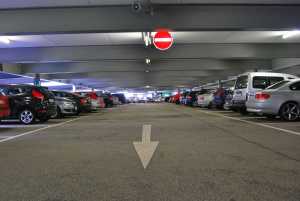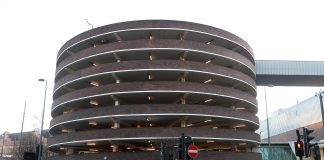Council bosses in Newcastle say they are “not averse” to imposing new late-night parking charges in the city centre.
Charges to use on-street bays and council-run multi-storey car parks in the city centre currently run until 7pm.
That rule has been in force since summer 2022, when Newcastle City Council axed the Alive After Five scheme that had provided free parking after 5pm but scaled back its original plans to introduce fees until 10pm following a backlash.
But civic centre chiefs have hinted that could change again in future.
Lynne Ryan, the local authority’s parking services manager, told cllrs on Tuesday that the council was “not averse to considering night time charges” – but that it would be dependent on there being sufficient demand and the council being able to afford to pay enough staff to enforce the fares.
She also revealed that trials of later opening hours are planned at two popular multi-storey car parks in Dean Street and Grainger Town, both of which currently shut at midnight.
Speaking at the council’s finance and budget scrutiny committee, Lib Dem cllr Gareth Kane said he would be “happy” to pay £3 or £4 for late night parking – after reporting that he was charged 8p to park for an hour near Central Station late on a Friday night recently.
Ms Ryan replied: “They are things we are not necessarily against, but there does need to be a demand there and enforcement is a consideration as well.”
She added: “If it was something that we were to look at, it might that it is just certain car parks. We are looking at a pilot in two of our multi-storey car parks for overnight parking.
“We close the multi-storey car parks at 10pm or midnight, depending on the car park. But in order to support the night time economy and to open some secure, staffed car parks in the city [late at night] we are going to pilot Dean Street and Grainger Town. We are working with the business community on that. It will run for six months and charge a nominal fee.”
A council report warned that there is “significant continued pressure on the parking budget” caused by more people working from home, the rise of online shopping, city centre roadworks, moves to push more drivers towards sustainable transport, and the removal of more than 130 on-street bays in the last five years in locations like Grey Street.

Parking tariffs in the city were last increased in April 2024 and the council said it has not done so this year “because several car parks brought in less income in 2024/25 than they did in 2023/24 despite having a tariff increase”.
Labour cllr Rob Higgins said that car parks are not a “cash cow” and that the income was put back into managing the transport network, while colleague Joyce McCarty added that the redesign of Grey Street had cost the council income but had been “much better” for the city.
Cllr Kane suggested that further increases in tariffs should both increase income in line with discouraging car travel, adding that other councils used number plate recognition cameras to impose higher charges on more polluting vehicles.
David Hall, the council’s assistant director of operations, said: “Clearly we have ambitions around net zero, clean air, pedestrianisation, we want people on more sustainable modes of transport. At the same time there has to be a discussion with our director of finance on how we manage the income with the push to reduce cars in the city centre.”




